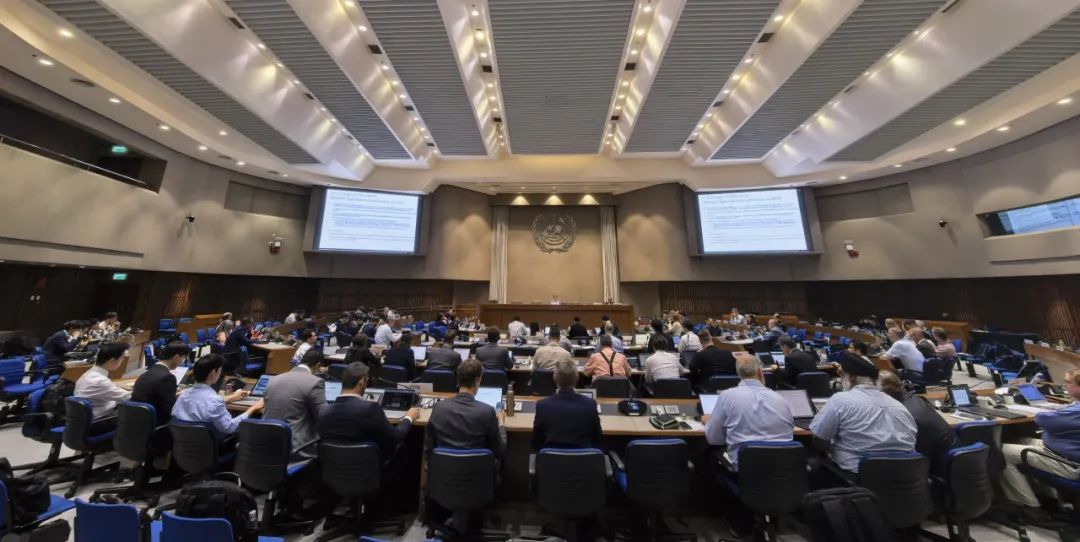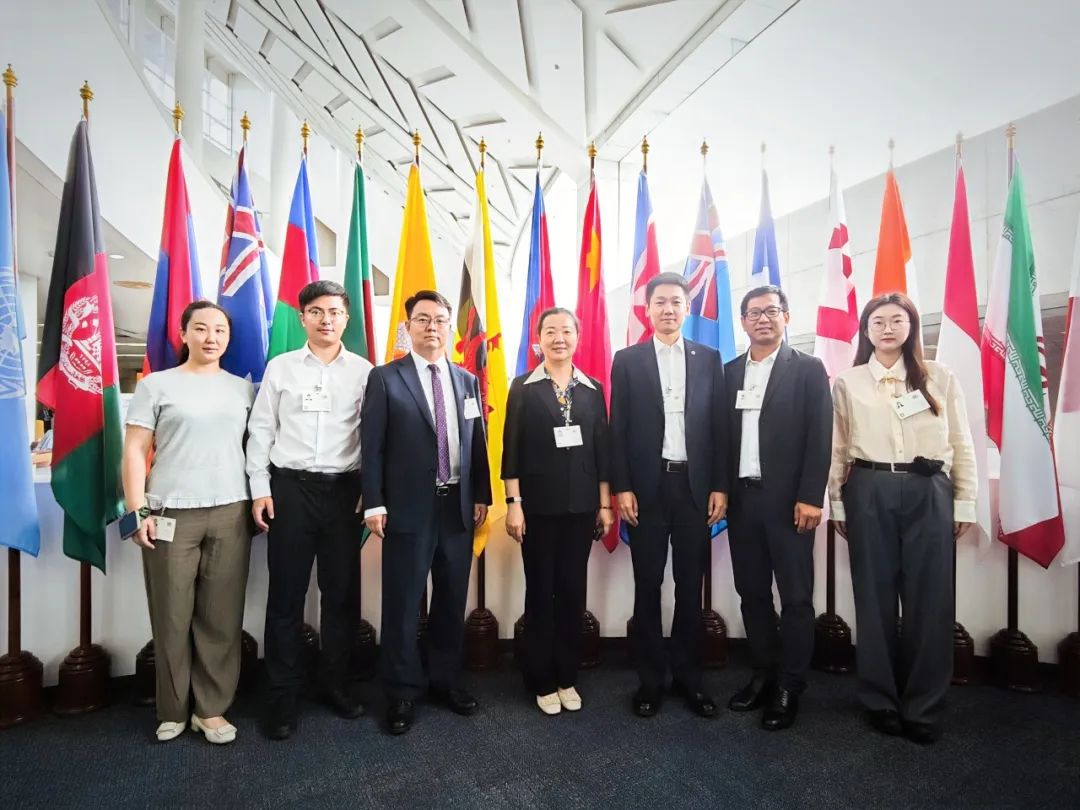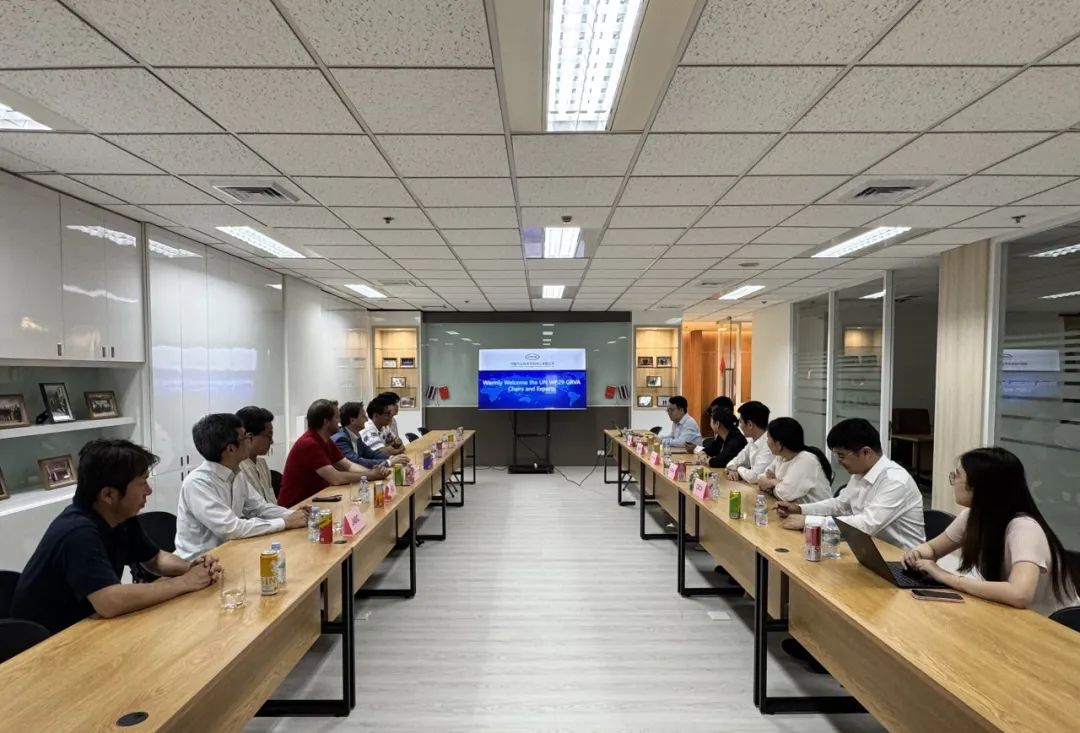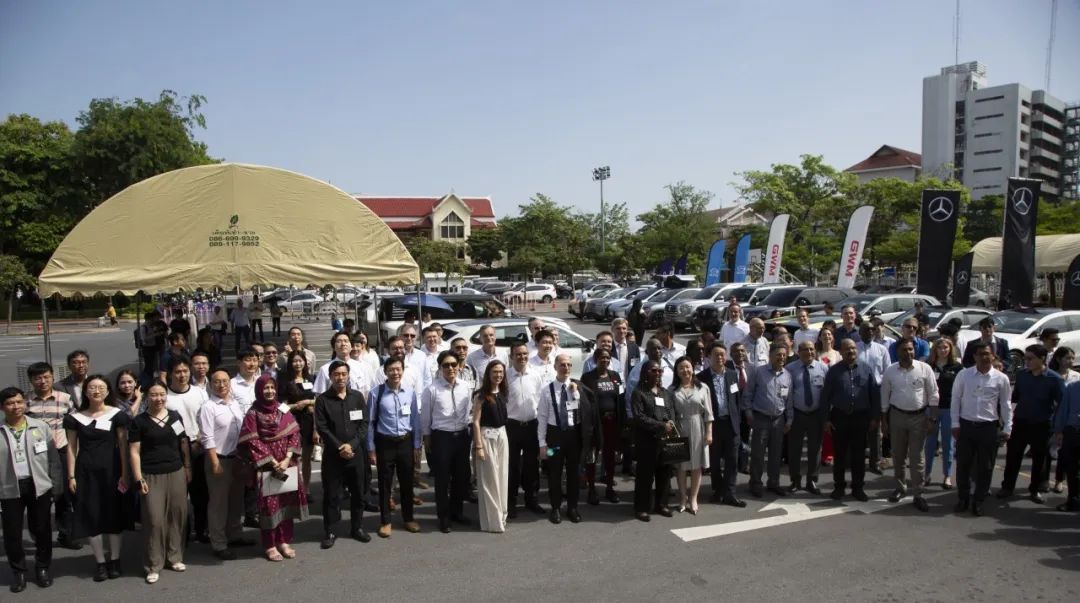22nd GRVA Session Held in Bangkok
Date:2025-06-06 15:07
Typeface【 Default large Extra large 】
From June 2 to 5, 2025, the 22nd Session of the Working Party on Automated/Autonomous and Connected Vehicles (GRVA), UNECE World Forum for Harmonization of Vehicle Regulations (WP.29), was held in Bangkok, Thailand. Over 100 experts attended the Session, including representatives from the contracting party governments such as China, Germany, Japan, the United States, France, the United Kingdom, Italy, the Netherlands, Russia, Canada, the Republic of Korea, and the European Union (EU), as well as from international and industry organizations such as the International Organization of Motor Vehicle Manufacturers (OICA), the European Association of Automotive Suppliers (CLEPA), and SAE International (SAE). Richard Damm, Chair of GRVA, presided over the 22nd Session. Chen Chunmei, Vice-Chair of GRVA and Level I Division Rank Official of Department of Equipment Manufacturing Industries I, Ministry of Industry and Information Technology (MIIT), and experts from the China Automotive Technology and Research Center Co., Ltd. (CATARC), China Academy of Information and Communications Technology (CAICT), and China Intelligent & Connected Vehicles (Beijing) Research Institute Co., Ltd. represented China at the Session. Representatives from CATARC’s Southeast Asia regional office were also present.

Photo 1: Scene from the 22nd GRVA Session
The Session conveyed the arrangements of WP.29’s 195th session and heard reports on recent work from various GRVA subgroups. The agenda also included discussions on proposals in key technical areas, presentations on special research, and reports on regulatory developments by contracting parties. Plans for follow-up work and future regulatory considerations were also outlined.
The Informal Working Group (IWG) on Automated Driving System (ADS) presented the latest draft framework for the technical content of the proposed regulation, and planned to integrate input from the ADS workshop to develop a complete United Nations Regulation (UNR) and Global Technical Regulation (GTR) in July 2025. The Session defined a specific approach for type approval authorities under the 1958 Agreement to exchange driver control assistance system (DCAS) incident data via the Database for the Exchange of Type Approval documentation (DETA). The IWG on Data Storage System for Automated Driving (DSSAD) finalized a guidance document on DSSAD, which was approved by the Session. The Session also requested the DSSAD IWG and ADS IWG to jointly transform the technical content of this guidance document into formal regulatory text. In addition, the Session heard the report on cross-group coordination matters, and approved multiple amendments to regulations concerning braking (UN R13), steering (UN R79), and other fields. Discussions were held on amendments to the 1958 Agreement and further development and revision of technical regulations on motorcycle safety.

Photo 2: Chinese Delegation
The Chinese delegation actively engaged in the discussions, putting forward two proposals that drew significant attention from participants: one on future priorities for data security, and another on initiating the development of regulations for door open warning systems. The Chinese side will continue to communicate with other stakeholders to advance these initiatives. In addition, the delegation shared suggestions for updating the Intelligent Transport Systems (ITS) Roadmap, which were taken into consideration. GRVA will continuously collect relevant suggestions before revising the roadmap.

Photo 3: GRVA Expert Team Visits CATARC’s Southeast Asia Regional Office
On June 3, Richard Damm, Vice-Chairs of GRVA Takashi Naono and Chen Chunmei, and Secretary of GRVA Francois Guichard, as well as experts from the Ministry of Land, Infrastructure, Transport and Tourism (MLIT) of Japan, National Traffic Safety and Environment Laboratory (NTSEL) of Japan, and Japan Automobile Standards Internationalization Center (JASIC), visited CATARC’s Southeast Asia regional office for a study and exchange on the internationalization of standards.

Photo 4: Exhibition and Demonstrations Held Concurrently with the Session
On the morning of June 4, the concurrent exhibition and demonstrations for autonomous driving technologies and products were held. Domestic automakers, including Changan Automobile, GAC Group, BYD, and GWM, participated alongside international counterparts, presenting both static displays and dynamic test rides that showcased driver assistance features in cruise control, parking, and other areas.
Under the guidance of the MIIT and other relevant departments, China Automotive Standardization Research Institute is dedicated to enhancing the internationalization of China’s automotive standards and regulations, and harmonization of international standards and regulations in specialized fields such as intelligent connected vehicles (ICVs). It aims to establish a bridge for standardization collaboration between China and other countries, contributing to the standardized and sustainable development of the international automotive industry.
Previous article
Next article